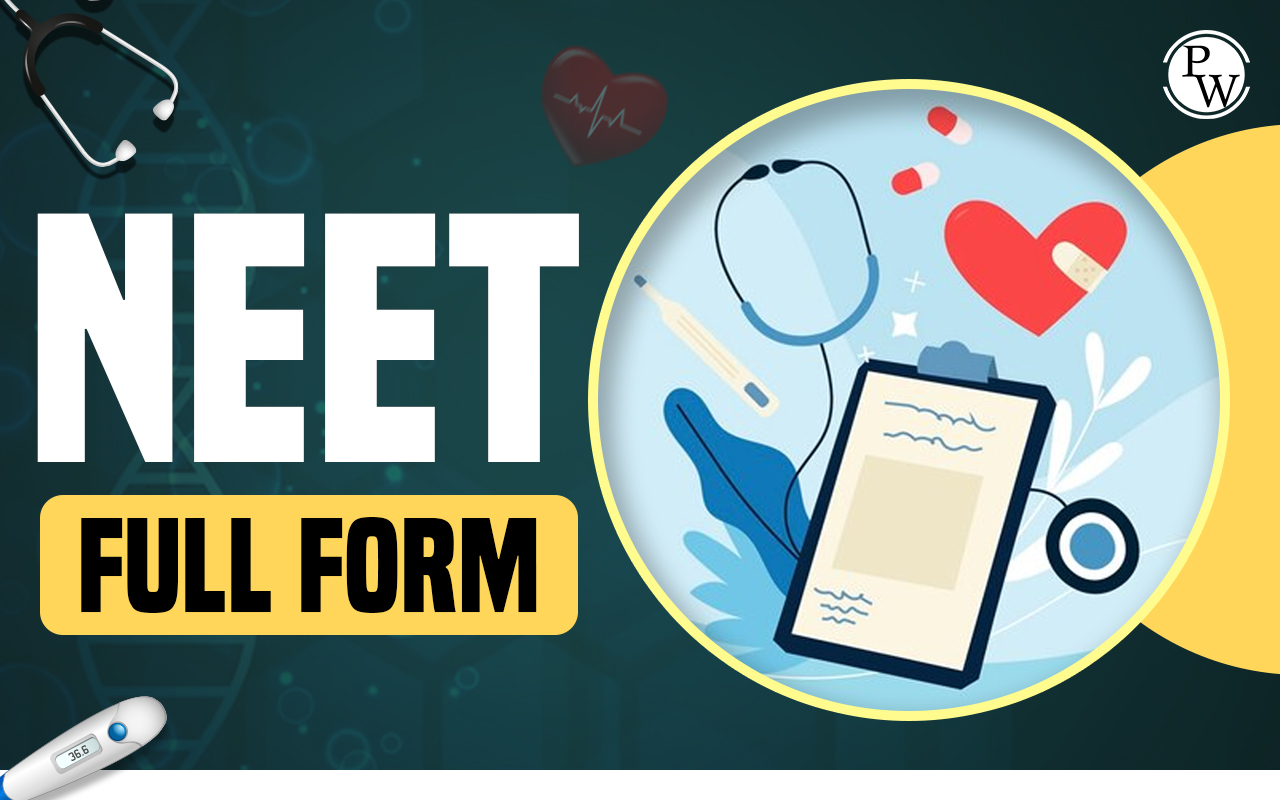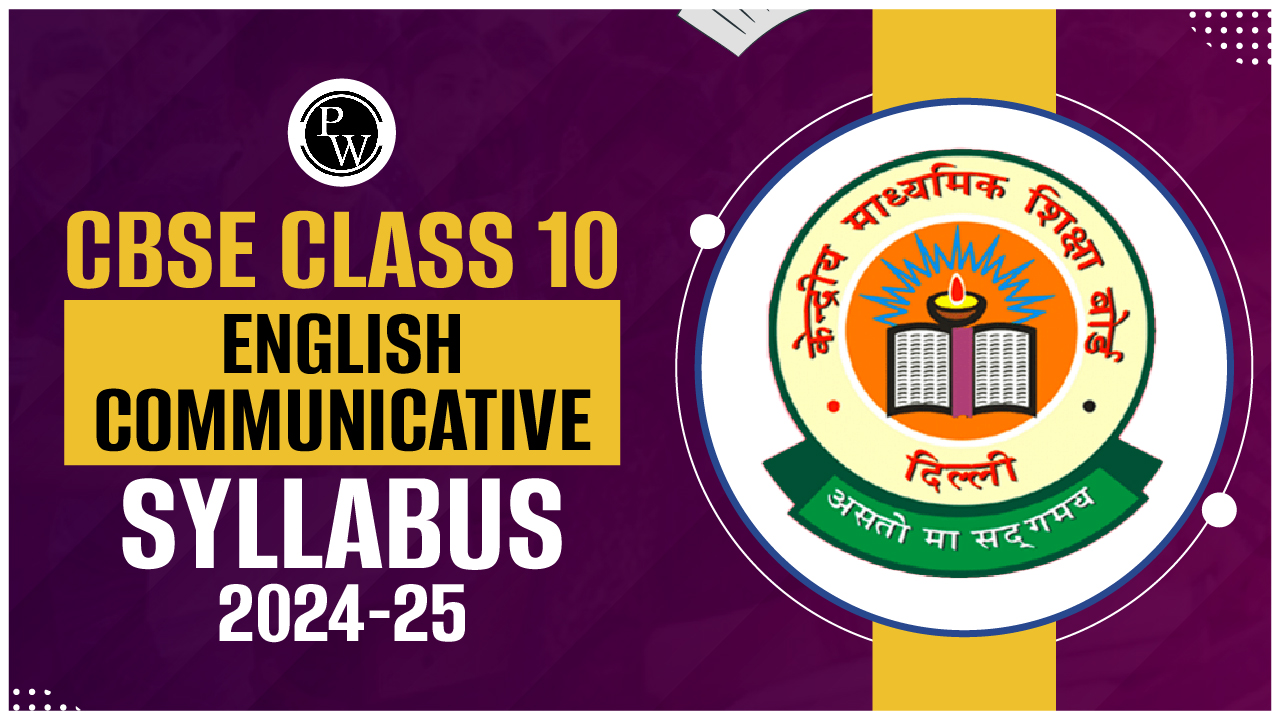What is NEET? NEET Full Form, Eligibility Criteria, & Syllabus

NEET Full Form: NEET is one of the most popular medical entrance exams in the country. NEET's full form in English is National Eligibility cum Entrance Test. It is a single-level examination that is designed for candidates seeking admission to medical courses. Accepted across the country by various medical colleges, universities, and institutions, it is also accepted by JIPMER and AIIMS institutes from 2020. This has been a paradigm shift in the medical field as it resulted in the complete replacement of the other medical entrance exams that were conducted by other states.
Check Out - NEET Books
NEET Exam 2026: An Overview
Before searching for something like NEET full form kya hai, get some basic idea about this medical entrance test. Some of the key highlights of this exam have been provided below:
|
Particulars |
Details |
|
NEET Full Form in English |
National Eligibility cum Entrance Test |
|
Organising Body |
NTA (National Entrance Academy) |
|
Number of Questions |
200 |
|
Type of Questions |
MCQ (Multiple Choice Questions) |
|
Provides Entry To Which Courses? |
MBBS, BDS, AYUSH, and other medical courses. |
|
Exam Duration |
200 minutes |
|
Exam Mode |
Offline (Pen and Paper Based Test) |
|
Subjects |
Physics, Chemistry, Zoology, and Botany |
|
Total Marks |
720 (180 marks for each subject) |
|
Marking Scheme |
Four marks for every right answer. One mark is deducted for every wrong answer. |
|
Medium of Entrance Test |
13 languages - English, Hindi, Marathi, Kannada, Odia, Bengali, Malayalam, Tamil, Punjabi, Assamese, Urdu, Telugu, and Gujarati. |
Check Out - NEET Previous Year Papers
Eligibility Criteria For NEET 2026
The students who have cleared their 12th class exams can apply for the NEET 2026 exam. They must be at least 17 years of age while applying for this entrance test. There is no upper age limit for this exam.
Also, a student can give this exam any number of times. So, there is no limit to the number of attempts for which a candidate can appear for this exam. Some of the key details of the NEET eligibility criteria have been provided in the below table:
|
Particulars |
Details |
|
Minimum Qualification Required |
10+2 in PCB group with at least 50% marks (General Category). |
|
Upper Age Limit |
No |
|
Minimum Age Limit |
17 years |
|
Number of Attempts |
No limit |
Check Out - NEET Question Bank
NEET 2026 Syllabus
The topics and syllabus covered in 12th and 11th class are included in the NEET 2026 syllabus. Most of the questions are asked from the topics related to Physics, Biology, and Chemistry. The main topics covered in each subject are listed below:
Chemistry:
The students can start by preparing from the 11th and 12th class NCERT Chemistry NEET books. The below table contains all the important topics covered in Chemistry:
|
Topics |
Description |
|
States of Matter |
Different states of matter in the world and cosmos are discussed in this topic. |
|
Structure of Atom |
The structure of an atom along with its elements like protons, neutrons, and electronics are discussed in this topic. |
|
Redox Reactions |
The functions and properties of organic reductions or organic redox reactions are explained in this topic. |
|
S-Block Elements |
Th 14 S-Block Elements such as Radium, Rubidium, Lithium, Hydrogen, etc. are discussed in this topic. |
|
P-Block Elements |
The P-Block Elements, their properties, and applications in various fields are explained in this topic. |
|
Chemical Bonding and Molecular Structure |
The arrangement of atoms and formation of bonds are discussed in this topic. |
|
D-Block and F-Block Elements |
The properties of D-Block and F-Block Elements are covered in this topic. |
|
Solid State |
Different types of solids and their properties are covered in this topic. |
|
Hydrogen |
The properties of hydrogen and its applications in various fields are discussed in this topic. |
|
Alcohol |
The chemical reactions, properties, and applications of alcohols are covered in this topic. |
|
Phenols and Ether |
This topic covers the chemical structure of ether and phenols along with their chemical reactions and applications. |
|
Surface Chemistry |
The reactions that happen at the surface of two elements, objects, or particles are explained in this topic. |
|
Electrochemistry |
The properties of moving electrons are discussed in this topic. |
|
Equilibrium |
The concept, laws, and applications of Equilibrium are discussed in this topic. |
|
Polymers |
Different types of polymers and their applications are covered in this topic. |
|
Biomolecules |
The major types of biomolecules and their properties are discussed in this topic. |
|
Classification of Elements and Periodicity |
This topic covers the classification of elements according to the periodic table. |
Physics:
Physics is one of the most difficult subjects when it comes to the NEET syllabus. The below table contains all the important topics covered in the Physics subject:
|
Topics |
Description |
|
Laws of Motion |
Newton's laws of motion and their applications in real life are explained in this topic. |
|
Electromagnetic Waves |
The composition and features of Electromagnetic Waves are discussed in detail in this topic. |
|
Electrostatics |
The properties of force that acts upon objects are explored in this topic. |
|
Properties of Bulk Matter |
Stress, strain, elasticity, and other properties of bulk matter are discussed in this topic. |
|
Electronic Devices |
Electronic devices like computers, calculators, mobile phones, digital watches, etc. are covered in this topic. |
|
Thermodynamics |
The relation between heat, energy, work, and temperature are explored in this topic. |
|
Kinematics |
The motion of systems, bodies, and points without considering the forces that move them is covered in Kinematics. |
|
Optics |
This topic covers properties of light and their impact on human vision. |
|
Oscillations and Waves |
Different types of waves and oscillations are studied in this topic. |
|
Physical World and Measurement |
The basic forces and physical properties in the physical world are explored in this topic. |
|
Dual Nature of Matter and Radiation |
The dual nature of radiation and matter are the pathbreaking revelations in the field of Physics. They are discussed in detail in this topic. |
|
Atoms and Nuclei |
The structure of atoms, their particles, and nuclei are covered in this topic. |
|
Gravitation |
The concept of gravity and its impact on different life forces are explained in this topic. |
|
The behaviour of perfect gas and Kinetic Theory |
The meaning of kinetic theory of gasses is explained in this topic. |
Biology:
Biology can be further categorized into zoology and botany. This subject contains the most weightage in the NEET 2026 Exam. The below table will provide insights into the key topics related to this subject:
|
Topics |
Description |
|
Human Physiology |
The functioning of the human body in various states of health and diseases is discussed in this topic. |
|
Plant Physiology |
The physiological functions and processes that occur within plants are revealed in this topic. |
|
Cellular Structure and Functions |
The cellular structures of plants and animals along with their functions, features, and differences are studied in this topic. |
|
Diversity in Living World |
This topic covers the wide range of plants, animals, and microorganisms along with their categories and sub-categories. |
|
Structure of Plant and Animal Cells |
The structure of plant and animal cells are discussed in detail in this topic. |
|
Ecology and Environment |
This topic covers the various aspects of ecology and environment, their interrelation, and how they balance each other. |
|
Biology and Human Welfare |
The applications of biology in human welfare are explained in this topic. |
|
Genetics and Evolution |
The topic discusses the basic concepts of genetics and evolution including the Darwin Theory. |
|
Reproduction |
How plants and animals reproduce is explained in this topic covering important topics like sexual and asexual reproduction. |
|
Biotechnology and its Applications |
The various applications of biotechnology such as their uses in agriculture, medical diagnosis, therapeutics, etc. are discussed in this topic. |
Read More - NEET Negative Marks: How to Avoid Losing Scores?
NEET Preparation Tips 2026:
The following tips can help you prepare well for the NEET 2026 exam:
-
Start by getting a complete overview of the syllabus covered in Physics, Chemistry, and Biology subjects. Once you get acquainted with the syllabus, it will be quite easy to create a study plan.
-
A well-designed timetable can help you clear the NEET exam with flying colours. The timetable must contain time for each subject. Some time must be allocated for the difficult topics as well.
-
You must have a strong understanding of the basic concepts of each subject. So, you must collect some reference NEET preparation books that will guide you with the fundamental concepts of Physics, Biology, and Chemistry. You can also refer to online resources to develop a detailed understanding of a particular topic or concept.
-
Discuss your problems with your peers and teachers. Get guidance whenever you are unable to get hold over certain topics. Dedicate some time for solving NEET previous year papers.
NEET Full Form FAQs
-
What is the full form of NEET?
Ans. The NEET full form is National Eligibility Entrance Test. This entrance test helps candidates to secure admission in various medical courses.
-
When does NEET registration start?
Ans. NEET registration starts in the last week of January. Once the registration starts, it will be open for at least one month or so.
- Who conducts the NEET exam?
Ans. NTA (National Testing Agency) conducts the NEET exam for UG and PG medical courses every year.









